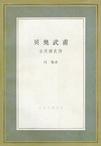貝奧武甫
出版時間:1992 出版社:生活·讀書·新知三聯(lián)書店 作者:佚名 譯者:馮象
Tag標簽:無
用戶評論 (總計1條)
- Beowulf, the oldest British literature ever discovered, is a heroic myth about the legendary experience of the warrior Beowulf.
In Beowulf, the joy of success was transient. In the first battle against Grendel, Beowulf took one arm of Grendel and hung it high, but the joy was soon broken by the second attack of Grendel. Another obvious transition from joy to sorrow happened at the end of the novel, where Beowulf’s success on killing the dragon was overwhelmed by the sorrow of his upcoming death. This transition from joy to sorrow might be intended to add the legendary sense of Beowulf and his fate. To readers, it might implicate the impermanence of fate, just as joy and sorrow. Nothing will last forever.
In the final scene, Beowulf died after defeating the dragon. It seems that Beowulf, as a symbol of heroism, is fated to die in the field. Beowulf regarded fighting against evil as his obligation, and he was questing honour and fame all his life. Although as a king, he should have kept himself safe for the sake of his kingdom, he still chose fighting the dragon in person and winning the dragon’s treasure for his fellows, which determined his inevitable death. However, if Beowulf did not die fighting, he would be identified as a king, not a warrior or a hero. Thus, heroism was fully embodied by Beowulf’s death.
We can already find the sign of Christianity in Beowulf. For instance, in the story, Grendel was described as “an accursed race” and “l(fā)ived in jealous exile from the lands of men”. It can be seen that Grendel was more like a monster than human beings, which was similar to the devil in Christianity. Besides, “God” or “Almighty God” was also mentioned several times in the poem.
Beyond all above, this old myth has also inspired Tolkeins. To some extent, without Beowulf, the Hobbit and the Lord of the Rings might be some totally different stories. To this point, we can see the influence of Beowulf in British literature.
